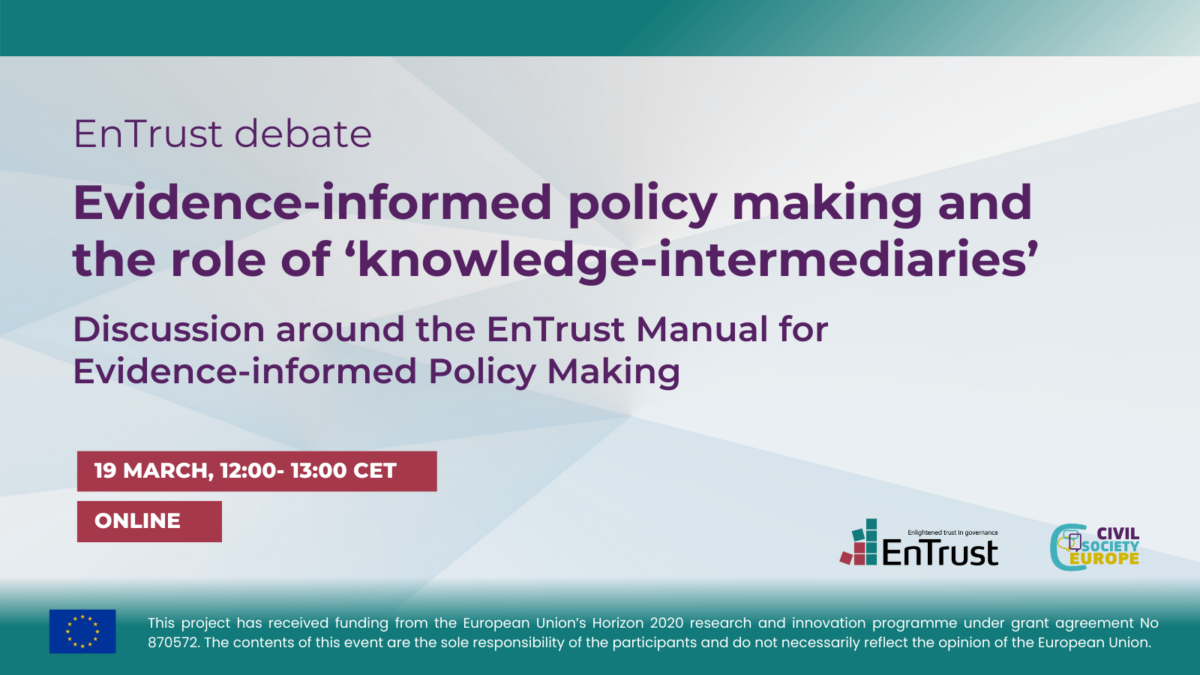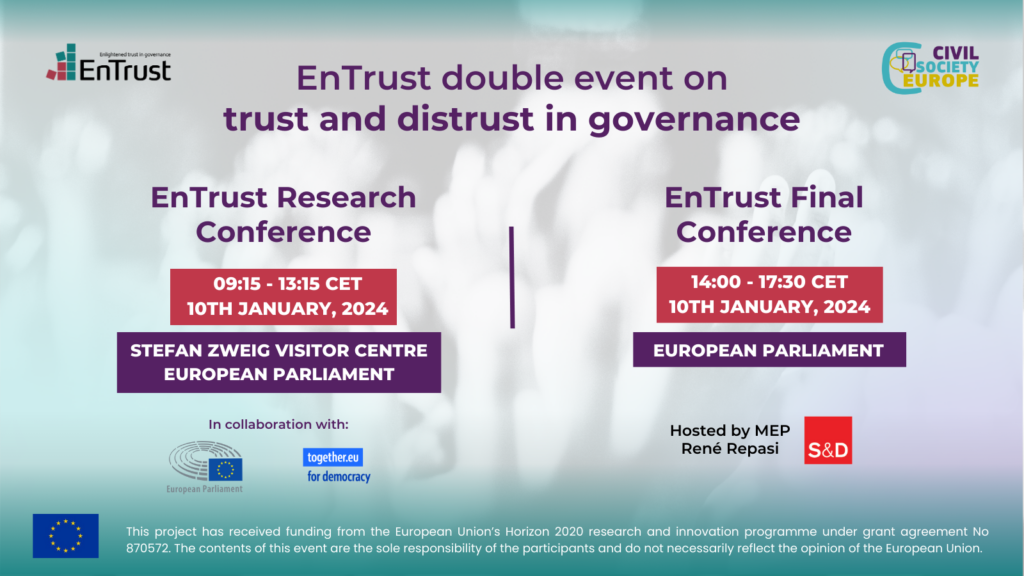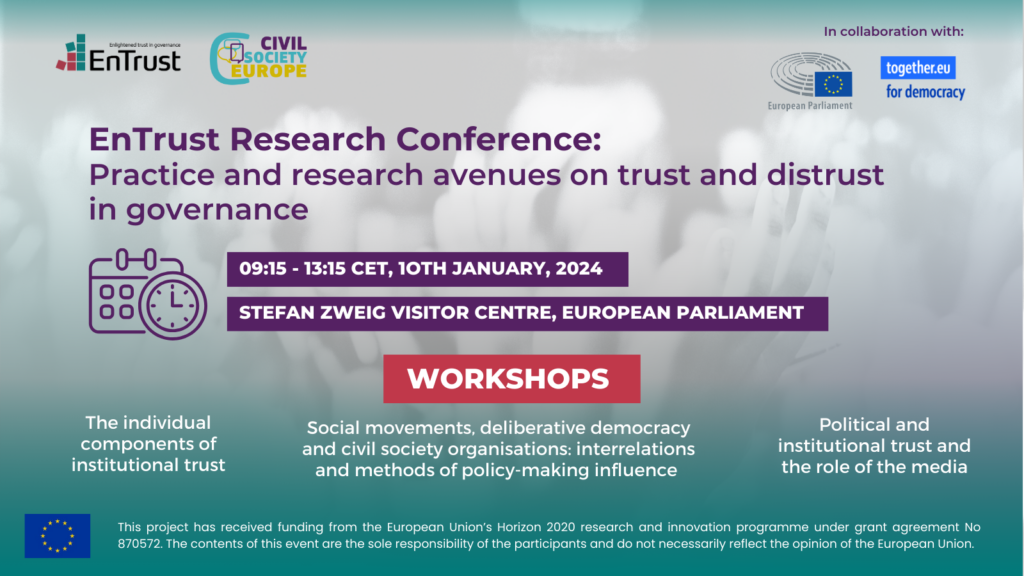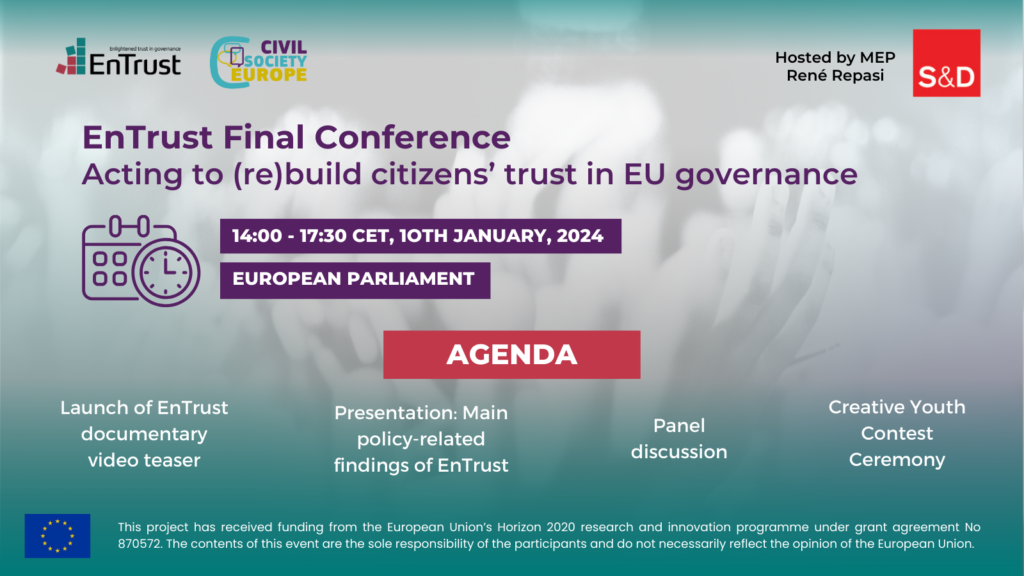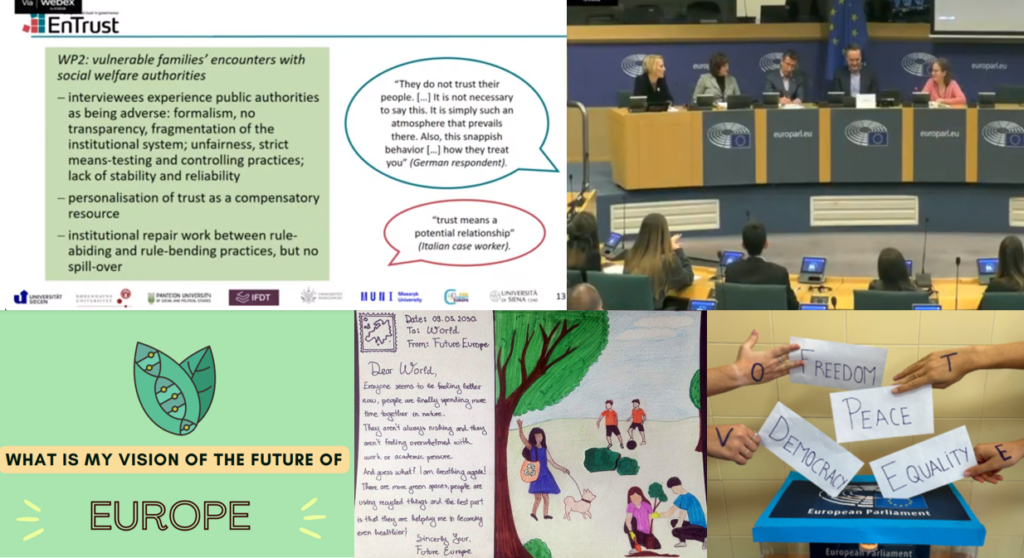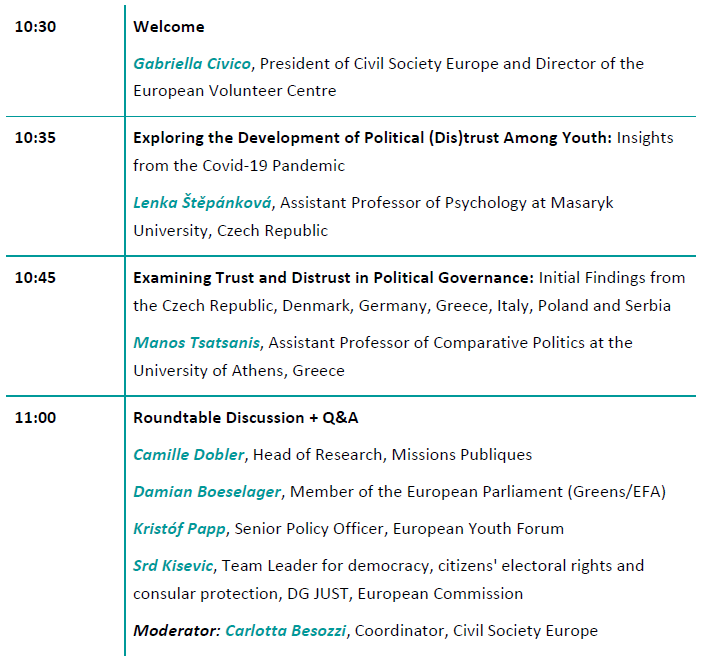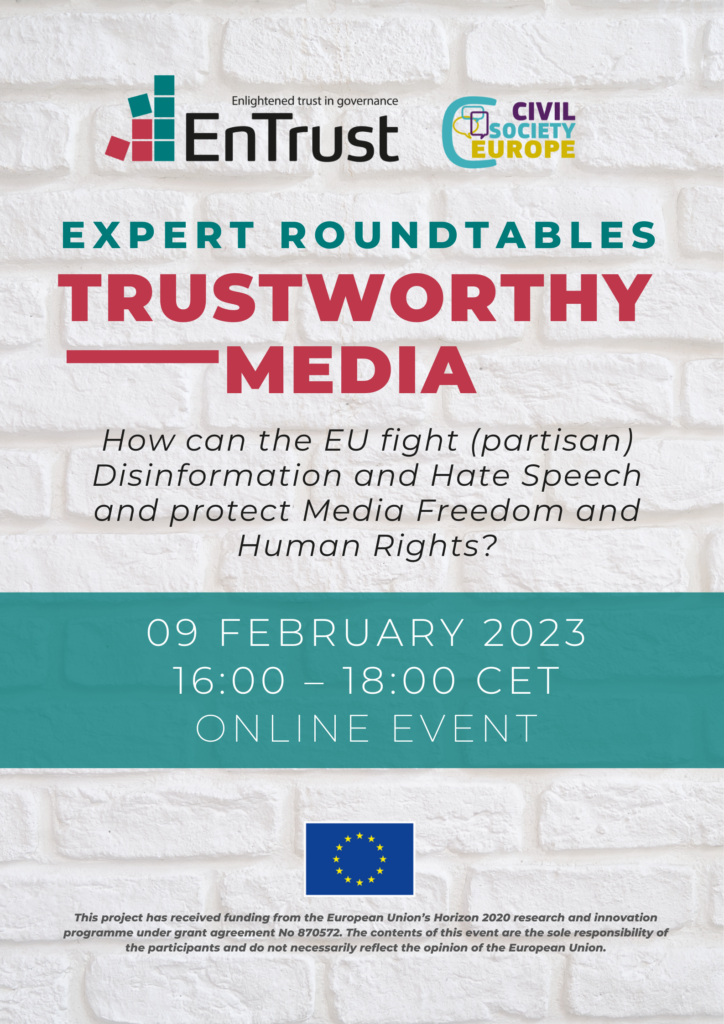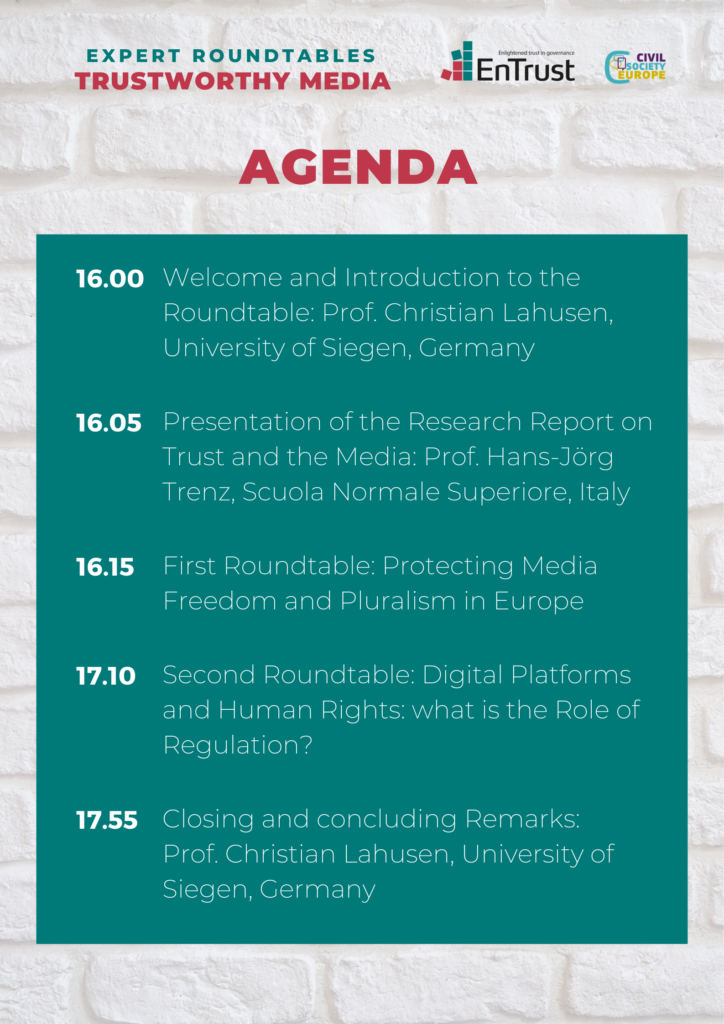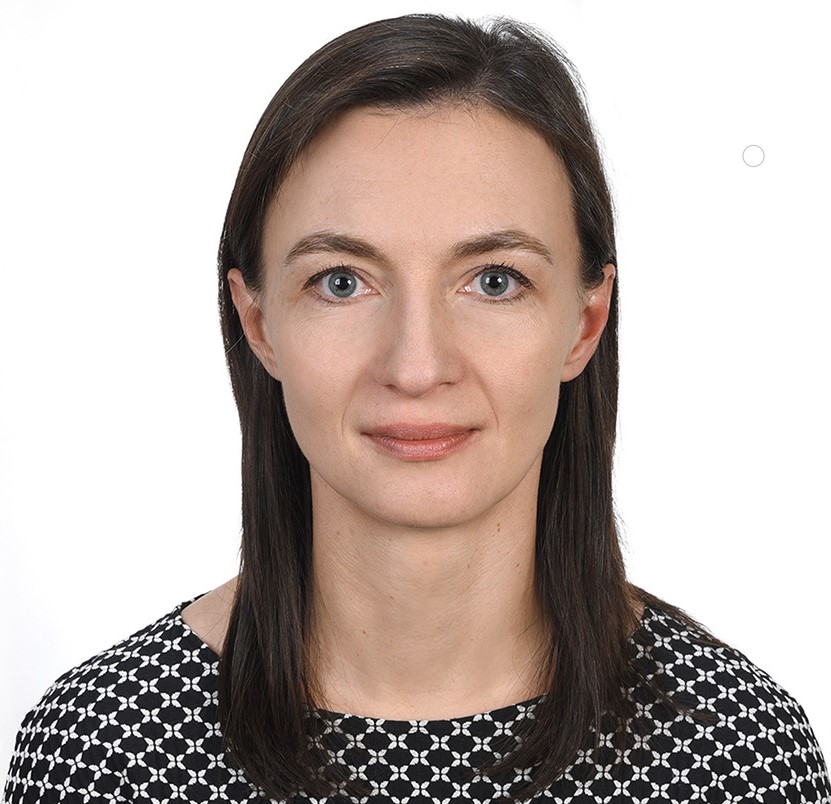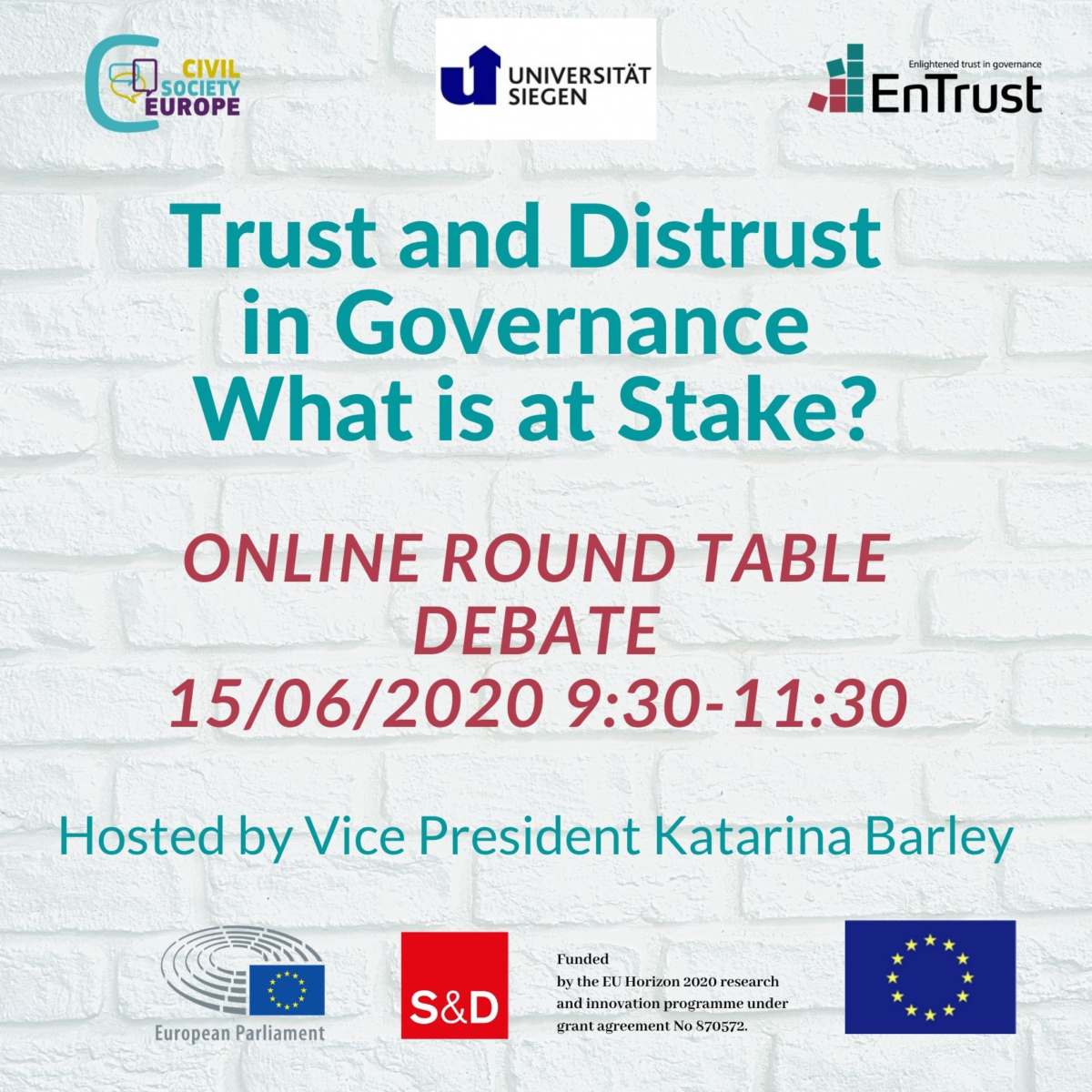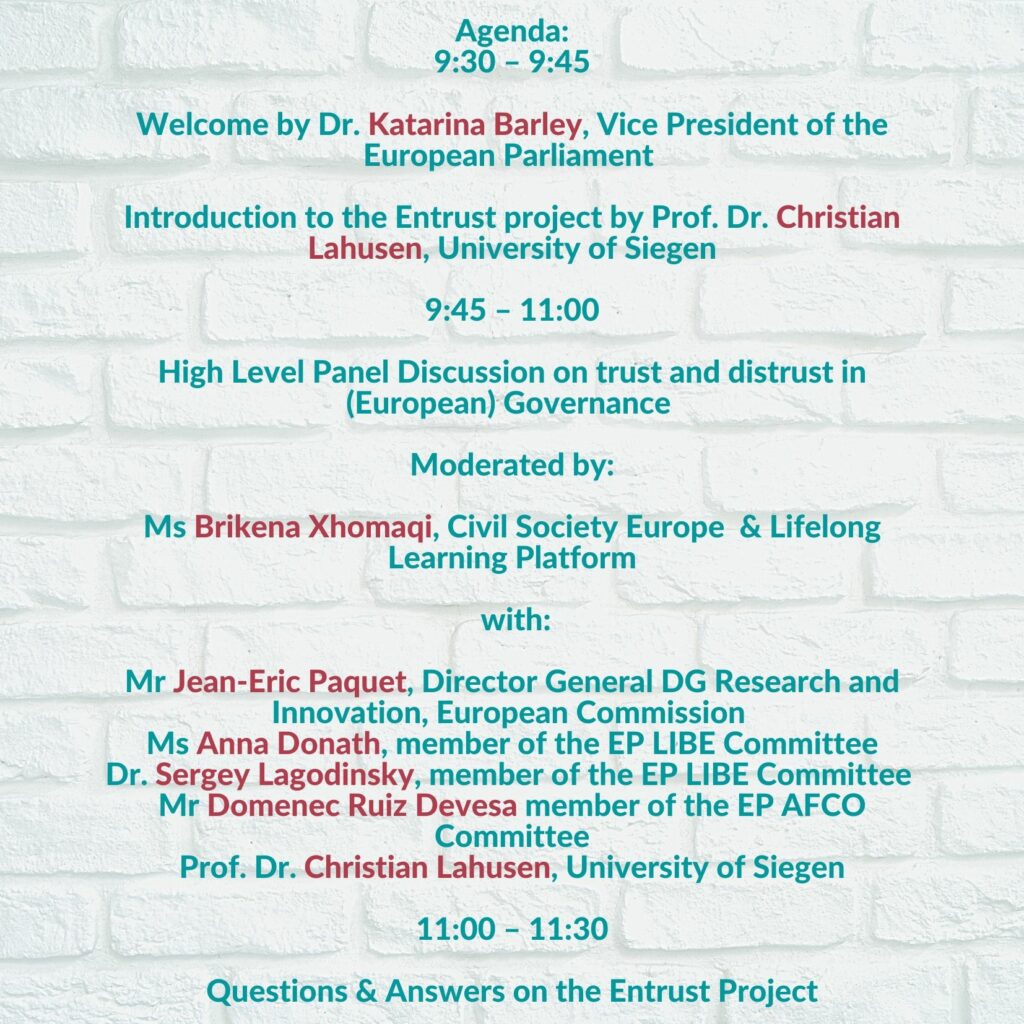Distrust, disengagement and the challenges of democracy: Discussion around the EnTrust Guide on ‘Enlightened Trust’
25th April 2024 |12:00 – 13:00 CET, Online
Find the conference programme here and event here.
Global surveys show that democracies struggle in terms of citizens’ trust towards the institutions – especially towards those that govern such democracies (government, parliament, political parties). Furthermore, in recent years, abstentionism has been on the rise in most of the elections in Europe, adding another layer of uncertainty to the state of health of democracies.
Nonetheless, the Enlightened Trust (EnTrust) research project has demonstrated, on the one hand, that not all distrust is detrimental to democracy and, on the other hand, that a balanced mix of trust in the values of the system and distrust to monitor their respect can be beneficial for democracy, in what has been called ‘enlightened trust’. Furthermore, one-fifth of the citizens surveyed cross-country for the project show low levels of both institutional trust and distrust, showing an alienation towards the political system that can prove problematic for democracy.
The EnTrust project has drafted a Guide on ‘Enlightened Trust’ to provide a concise picture of available scientific evidence on levels and forms of trust and distrust in political institutions, the determinants that impact their development, and the consequences and potential scenarios that are associated with different constellations of trust and distrust in democratic governance.
The debate will discuss the Guide on ‘Enlightened Trust’ and reflect on how to redress the narrative of generalised distrust and how to constructively re-engage disillusioned citizens.
Watch the live stream of the debate here.
- Agenda
- 12:00 – 12:10 | Presentation of the ‘Guide on Enlightened Trust’
– Christian Lahusen, University of Siegen, EnTrust Project Lead - 12:10 – 12:40 | Discussion on distrust, disengagement and the challenges of democracy
– Julia Schulte-Cloos, University of Marburg, co-author of Electoral
participation, political disaffection, and the rise of the populist
radical right
– Gaetane Ricard-Nihoul, DG COMM, European Commission, in
charge of the European Citizens’ Panels
– Gilda Isernia, OBESSU, author of Why Vote? An investigation on
the attitudes, challenges and views of youth on the vote for the
European Parliament elections 2024 - 12:40 – 13:00 | Discussion around the ‘Guide on Enlightened Trust’

